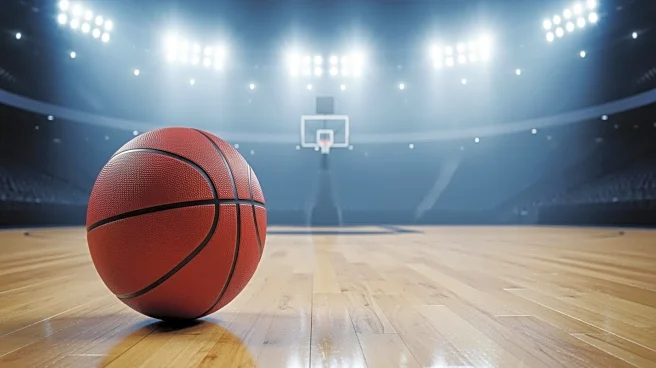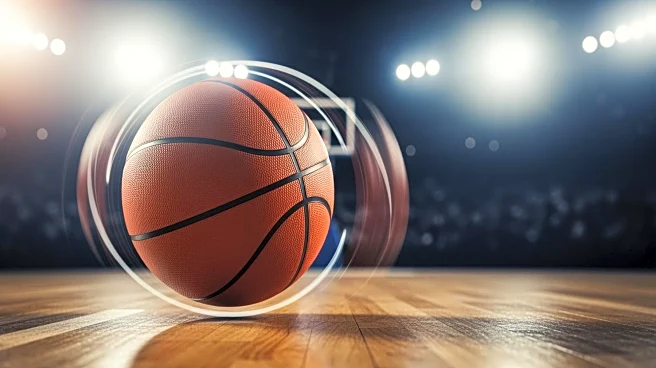What's Happening?
Luka Bogavac, a guard for the University of North Carolina, was cleared to play just before the team's game against Central Arkansas, resulting in a decisive 94-54 victory. Bogavac, originally from Montenegro, had been facing a school-level eligibility
issue despite having been cleared by the NCAA earlier in the fall. His debut was marked by a strong performance, contributing 10 points, five assists, three rebounds, and two steals. Bogavac previously played in the Adriatic Basketball Association, where he was known for his perimeter shooting skills. His addition to the team is expected to be significant, as he is among the top 10 incoming international players for the 2025-26 season.
Why It's Important?
Bogavac's clearance and subsequent performance are significant for UNC as they aim to maintain their competitive edge in college basketball. His international experience and skill set add depth to the team, potentially enhancing their performance in upcoming games. The resolution of his eligibility issue also highlights the complexities of NCAA and school-level regulations, which can impact player participation. For UNC, having Bogavac available strengthens their roster, providing more strategic options for the coaching staff. This development is crucial as the team prepares to face tougher opponents, including their next game against No. 19 Kansas.
What's Next?
Following his successful debut, Bogavac is expected to continue playing a key role in UNC's lineup. The team will face No. 19 Kansas in their next game, which will be a significant test of their capabilities. Bogavac's performance will be closely watched as he integrates further into the team dynamics. The resolution of his eligibility issue may also prompt discussions on the NCAA's regulatory processes and their impact on international players. UNC's coaching staff will likely focus on leveraging Bogavac's skills to enhance their strategies against higher-ranked teams.
Beyond the Headlines
Bogavac's situation underscores the challenges faced by international players in navigating eligibility requirements in U.S. college sports. His successful clearance may encourage other universities to pursue international talent, recognizing the value these players bring to their programs. Additionally, this case may lead to discussions on streamlining eligibility processes to avoid last-minute uncertainties that can affect team preparations and player morale.
















